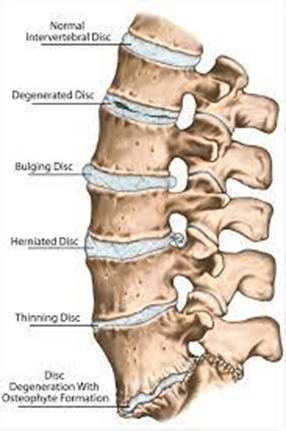Which of the following risk factors is associated with a client having a higher risk of experiencing status asthmaticus?
Previous stroke
Irritants and and hypersensitivity to medications
Previous intubation due to status asthmaticus episode
Bronchial pneumonia
The Correct Answer is C
Choice A Reason:
Previous stroke is not directly associated with an increased risk of status asthmaticus. While individuals with certain medical conditions, such as neurological disorders, may have an increased risk of complications from severe asthma exacerbations, a previous stroke alone is not a recognized risk factor for status asthmaticus.
Choice B Reason:
Irritants and hypersensitivity to medications, may trigger asthma exacerbations, but they are not specific risk factors for status asthmaticus. Asthma exacerbations triggered by irritants or medications can typically be managed with appropriate treatment measures and do not necessarily lead to status asthmaticus.
Choice C Reason:
Previous intubation due to status asthmaticus episode is correct. Status asthmaticus is a severe and life-threatening asthma exacerbation that is unresponsive to standard treatment measures such as bronchodilators and corticosteroids. It is characterized by prolonged and severe bronchospasm, airway inflammation, and respiratory distress.
Choice D Reason:
Bronchial pneumonia is not a known risk factor for status asthmaticus. Bronchial pneumonia, or pneumonia affecting the bronchi and lungs, is a separate respiratory condition caused by bacterial, viral, or fungal infections. While pneumonia can exacerbate asthma symptoms in individuals with asthma, it is not specifically associated with an increased risk of status asthmaticus.
Nursing Test Bank
Naxlex Comprehensive Predictor Exams
Related Questions
Correct Answer is A
Explanation
Choice A Reason:
Smoking tobacco is the primary and most significant risk factor for emphysema. Tobacco smoke contains harmful chemicals and toxins that directly damage the lungs. Chronic exposure to cigarette smoke leads to inflammation and destruction of lung tissue, particularly the alveoli, contributing to the development of emphysema.
Choice B Reason:
Between 20 to 30 years of age. While smoking at any age is harmful to lung health, the risk of developing emphysema increases with prolonged exposure to tobacco smoke over many years. Emphysema is typically a disease of middle to older age, with symptoms often appearing after years of smoking.
Choice C Reason:
Asthma is a chronic inflammatory condition of the airways characterized by reversible airflow obstruction and airway hyperresponsiveness. While asthma and emphysema are both respiratory diseases, they have distinct pathophysiological mechanisms and risk factors. Asthma is not a direct cause of emphysema, although some individuals with poorly controlled asthma may develop chronic obstructive pulmonary disease (COPD), which includes emphysema as one of its components.
Choice D Reason:
Pollution is not correct. Environmental pollution, including air pollution from industrial emissions, vehicle exhaust, and particulate matter, can contribute to respiratory problems and exacerbate pre-existing lung conditions. While exposure to pollution can worsen respiratory symptoms and lung function, it is not the primary cause of emphysema. However, long-term exposure to certain pollutants may increase the risk of developing respiratory diseases, including COPD, which encompasses emphysema.

Correct Answer is C
Explanation
Choice A Reason:
Paralytic ileus is incorrect. Paralytic ileus is a condition characterized by obstruction of the intestines due to paralysis of the intestinal muscles, resulting in symptoms such as abdominal pain, bloating, and constipation. Paralytic ileus is not typically associated with cauda equina syndrome, which primarily affects the nerves in the lower back and lower extremities.
Choice B Reason:
Blood pressure 80/48 mm Hg is incorrect. While cauda equina syndrome can cause neurological symptoms such as lower extremity weakness, numbness, and bowel or bladder dysfunction, it is not typically associated with alterations in blood pressure. Blood pressure changes may occur in response to pain or other systemic factors, but they are not specific to cauda equina syndrome.
Choice C Reason:
Weakness in one or both legs is correct. Yes, weakness in one or both legs is a characteristic finding of cauda equina syndrome. Compression of the nerve roots in the lower spinal cord can lead to motor deficits, including weakness, difficulty walking, and loss of reflexes in the lower extremities.
Choice D Reason:
Potassium 3.2 mEq/L is incorrect. Serum potassium levels are not typically associated with cauda equina syndrome. Abnormal potassium levels may be indicative of electrolyte imbalances, which can occur in various medical conditions but are not specific to cauda equina syndrome.

Whether you are a student looking to ace your exams or a practicing nurse seeking to enhance your expertise , our nursing education contents will empower you with the confidence and competence to make a difference in the lives of patients and become a respected leader in the healthcare field.
Visit Naxlex, invest in your future and unlock endless possibilities with our unparalleled nursing education contents today
Report Wrong Answer on the Current Question
Do you disagree with the answer? If yes, what is your expected answer? Explain.
Kindly be descriptive with the issue you are facing.
